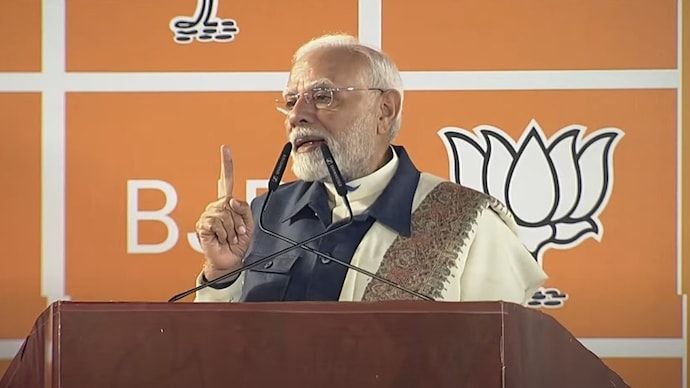PM Modi Declares Waqf Law Unconstitutional, Sparks Controversy

NEW DELHI — In a fiery address following a significant political victory, Prime Minister Narendra Modi has announced that the Waqf law, which governs Muslim religious endowments in India, finds no place in the Indian Constitution. His statement, made during a victory speech at the BJP headquarters, has ignited a heated debate across the nation.
"The Waqf law has no place in our Constitution," PM Modi declared, asserting that the Congress party, before the 2014 elections, had transferred several properties near Delhi to the Waqf Board, which he described as an act of "appeasement politics." The crowd roared in approval, chanting "Modi Modi, Bharat Mata Ki Jai, Ek Hai To Safe Hai," reflecting the intense support for the Prime Minister's stance.
Modi further emphasized, "Babasaheb Ambedkar had not mentioned the Waqf Act anywhere in the Constitution," suggesting that the law was an overstep by previous administrations to cater to vote banks. This remark was part of a broader critique on the Congress party's governance, labeling their actions as an attempt to give "death penalty" to "real secularism."
The announcement has led to a flurry of reactions:
Support from BJP Allies: Several BJP allies and supporters have backed Modi's view, seeing it as a move towards true secularism, where no religion should be given preferential legal treatment over others.
Opposition's Outcry: The Congress and other opposition parties have criticized the statement as an attack on minority rights, arguing that the Waqf Act has been integral for the management of Muslim community properties for charitable purposes.
Legal and Constitutional Debate: Legal experts and scholars are now debating the constitutional validity of the Waqf Act. While some argue that it infringes on the secular nature of the state, others contend that religious freedom and property rights are constitutionally protected.
Public Sentiment: On social media, particularly X, the news has trended with hashtags like #WaqfDebate, showing a divided public opinion. Some users celebrate the move as aligning with the vision of a secular India, while others express concern over the potential marginalization of Muslim community rights.
This statement by PM Modi has set the stage for a potentially contentious session in Parliament as the government might seek to amend or repeal aspects of the Waqf Act. Critics warn of possible social unrest and legal challenges, while proponents believe it's a step towards reforming laws to reflect constitutional values more accurately
